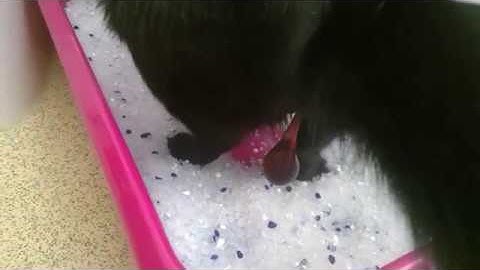Cat-lovers might describe stray cats as hungry and lonely, but when you're trying to protect your vegetable beds, you might also describe them as tenacious and destructive. Even if you are fond of the felines, you probably don't love the damage they do to your raised garden beds. To keep them out, create a barrier that cats can't cross, or lure them away with something more attractive. Show Help Them
Block Them
Annoy Them
Distract Them
Cats love the deep, soft soil in raised garden beds for lazing on or doing their business, which can mean disaster for seedlings or nasty surprises for you when you tend your plants. If cats are ruining your raised beds, you can tempt them away, deter them, use shock tactics or erect barriers, or try a combination of methods. If the cats are feral, you can also call the county animal control department or charity for help. Cat feces can carry parasites and diseases, so always wear gloves when gardening if you share your yard with a cat. Cat Temptations
Cat Deterrents
Cat Shock Tactics
Cat Barriers
How do I keep cats out of my raised vegetable garden?Sprays made from citrus, citronella, lavender, peppermint, lemongrass, or rosemary oil mixed with water can be applied to those areas as well. Vinegar, hot pepper, or garlic sprays may have some effect too. Don't use mothballs because they are toxic to you and the cats.
Will cats ruin a vegetable garden?There are two reasons to keep cats out of the garden:
It can contaminate the soil with toxoplasmosis and parasites such as roundworm and hookworm. Bacteria such as E. coli or Salmonella is also a problem.
Will cat poop hurt my vegetable garden?Any animal waste, not just cats, can also contaminate the soil with other parasites such as roundworm and hookworm and bacteria such as E. coli or Salmonella. So what to do if a cat uses your vegetable garden as a litter box? It must be cleaned and the sooner the better.
Do coffee grounds keep cats out of garden?Coffee Grounds
The strong smell of coffee can be enough to keep cats off of your garden. Simply take your fresh, wet coffee grounds and distribute them around your borders and plants where you want to discourage feline attention.
|

Related Posts
Advertising
LATEST NEWS
Advertising
Populer
Advertising
About

Copyright © 2024 ihoctot Inc.
















